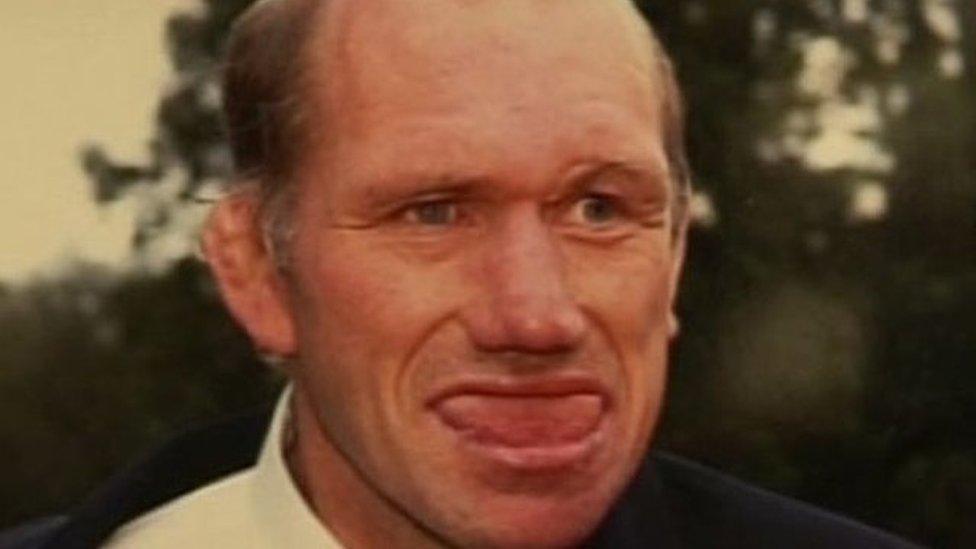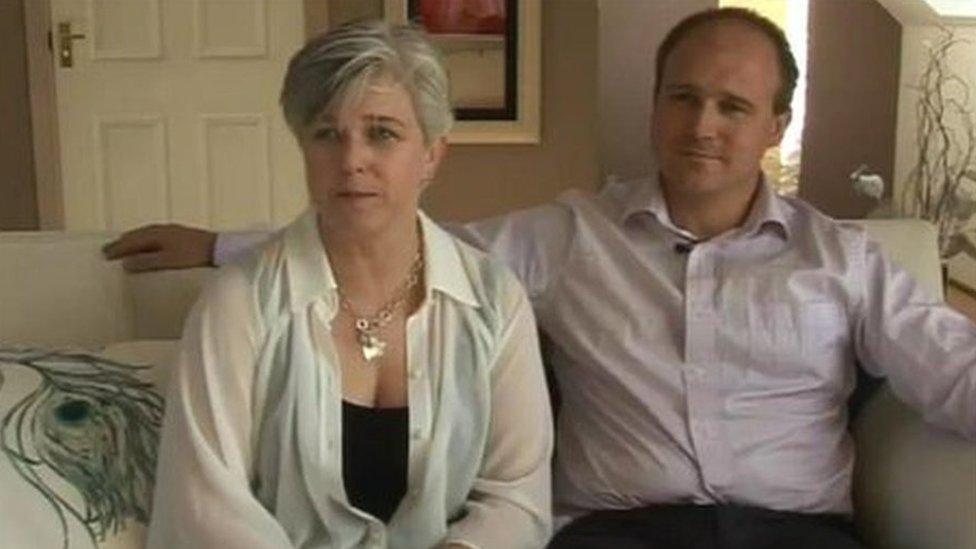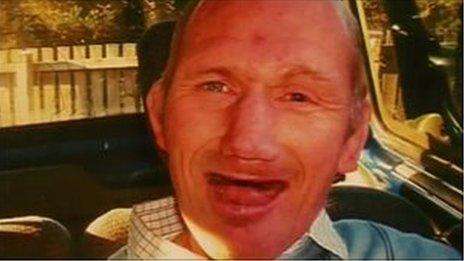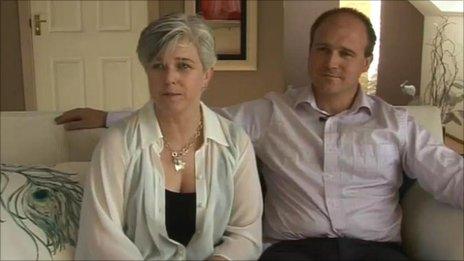NHS support for patients with learning disabilities
- Published

Paul Ridd's family say they hope the new service will be rolled out across Wales
Patients with learning disabilities will be given help when they need hospital care from a new service.
The Learning Disabilities Liaison Service will flag up people requiring support when admitted to hospital in the Bridgend and Swansea areas.
It has been created with the family of Paul Ridd, who had learning disabilities and who died at Morriston Hospital after receiving poor care.
His sister said the service - launched on Wednesday - was his "legacy".
An inquest heard 53-year-old Mr Ridd, from Baglan, Port Talbot, died from natural causes contributed to by neglect in 2009.
The hearing was told his nursing care was substantially below the expected standard.
Since then his sister and brother, Jayne Nicholls and Jonathan Ridd, have fought to ensure care standards are raised for patients with learning disabilities - with the new service covering all hospitals in the Abertawe Bro Morgannwg University Health Board area.
It will ensure a person's learning disability is flagged up on their medical notes, while special stickers will be put on their beds to alert staff.
Three liaison nurses will also be on hand to support patients and awareness training will also be given to NHS staff.

Jane Nicholls and Jonathan Ridd have been working closely with the health board to improve services
"I was amazed that when Paul died in 2009 there was nothing like this already in place - it's just common sense," said Mrs Nicholls.
She said simple steps could be taken to help people with learning disabilities in hospital - and that would help stop delays which often occurred when staff had to unexpectedly deal with a patient they did not know needed additional support.
"It's things like finding out what would make a person feel comfortable - perhaps they like their bedding from home or they would prefer a family member to feed them," she added.
"Sometimes it's a case of taking them to hospital for a visit before they need to go in so they get used to it.
"It's about forward planning - people with learning disabilities are so complex.
"If you make the healthcare experience better they won't be scared and panicked and that will also help the professionals do their jobs properly."
Consultant nurse Christopher Griffiths, who is leading the service, said the liaison nurses would be on hand to prepare patients for admission to hospital as well as supporting them during their time on the ward and after they return home.
- Published2 May 2013

- Published28 September 2011

- Published28 September 2011